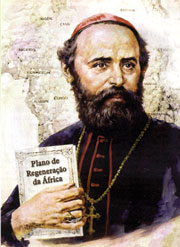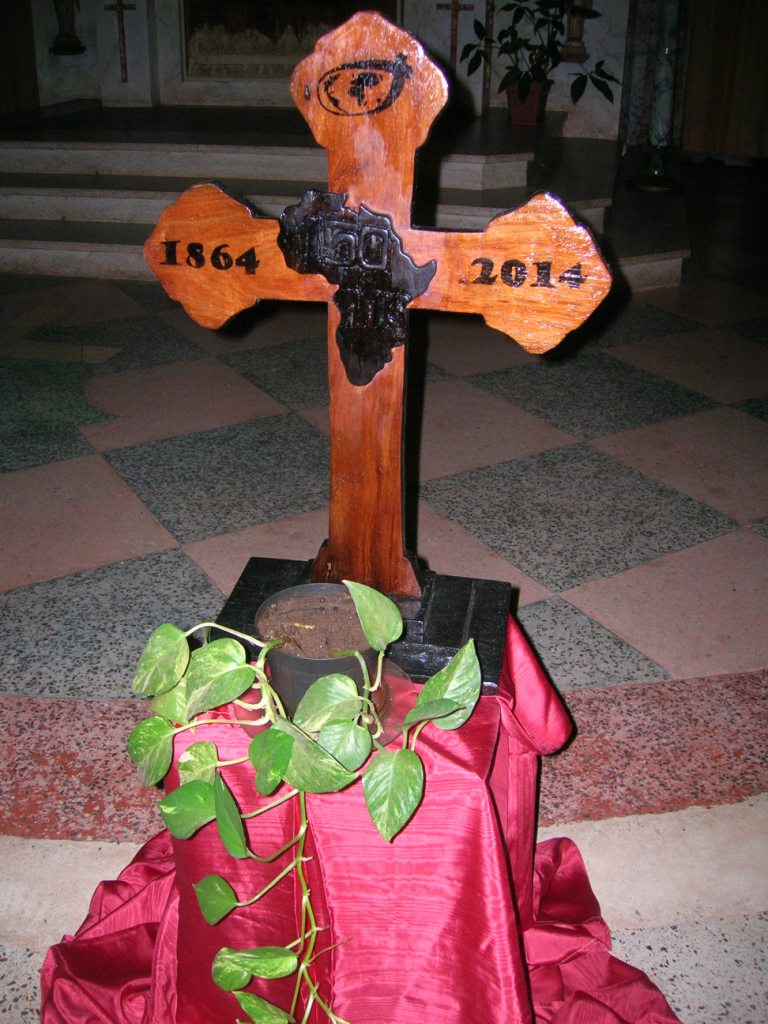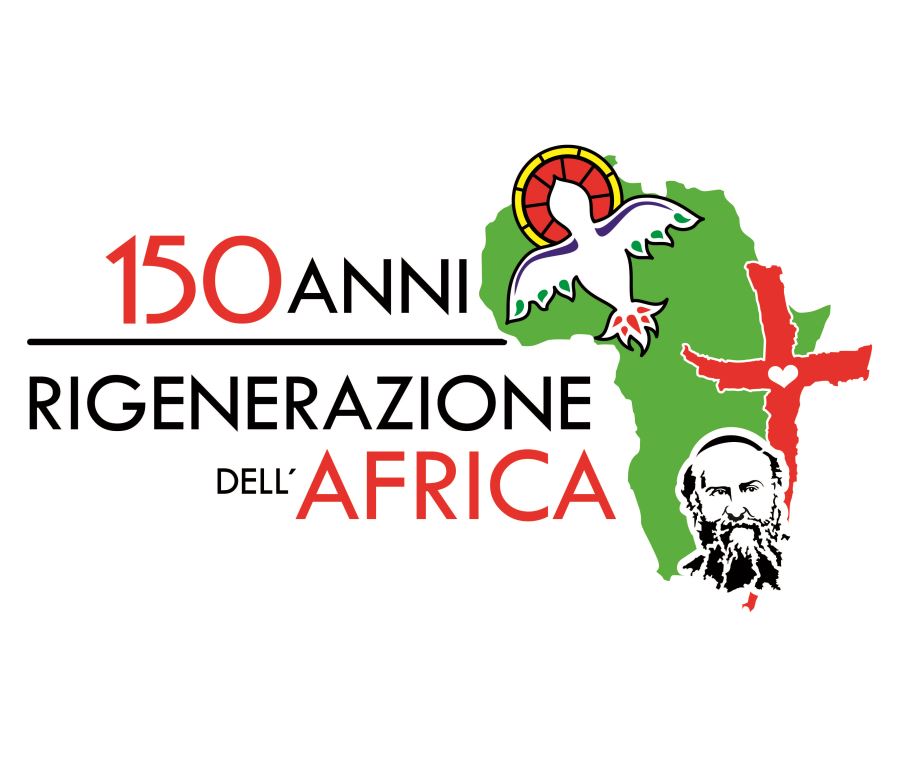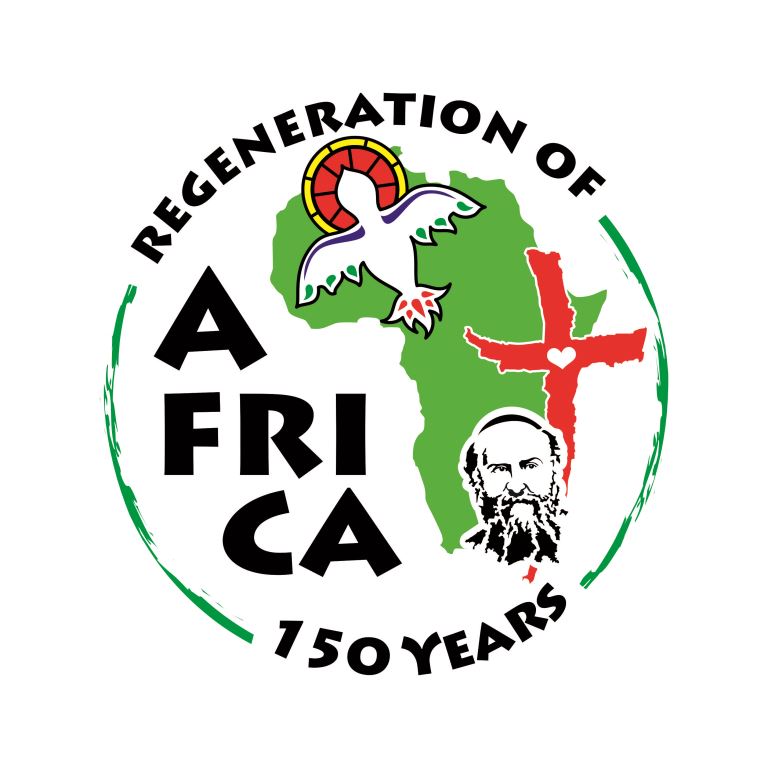 An up-to-date reading of the Plan of Comboni – based upon the missionary challenges of today – reveals two prophetic intuitions whose value, with the passing of time, has only grown:
An up-to-date reading of the Plan of Comboni – based upon the missionary challenges of today – reveals two prophetic intuitions whose value, with the passing of time, has only grown:
1.“The regeneration of Africa with Africa” (Writings 2753).
Daniel Comboni, due to his experience and that of other great apostles, is convinced that to achieve this “regeneration” there is no other way but to involve the African people as authentic protagonist of their history and builder of their liberation.
2. “… It will find an approving echo, support, favour and help in the hearts of the Catholics of the entire world, clothed and filled as they are by the spirit of that superhuman charity which embraces the immense vastness of the universe and which our divine Saviour came to bring to the earth” (W 2790).
With even greater audacity, Daniel Comboni declares that the realisation of this Plan for the regeneration of Africa requires the unconditional collaboration of all the forces of the Church and civil society, conquering all boundaries, prejudices or mean-spirited arguments.
These pages will be concerned with the latter aspect, the urgency, that is, to unify the commitment of all “Catholics” in favour of a single mission. The term “ministry” (ministerium = diakonía = service) helps us to better render the thought and the praxis of Daniel Comboni. We are aware that, in the Plan, he never uses such a word and that it is a term which is not found in the baroque language nor in the Tridentine theology of his time. By “ministry” we mean the missionary responsibility of all the baptised, without exception, to cause to emerge the Kingdom of love and justice (universal brotherhood) inaugurated by the person and the event of Jesus Christ among us. Daniel Comboni did not simply propose an organisational strategy but a manner of being a mature Church.
Let us go directly to the text of the Plan so as to achieve an understanding of the breadth of its horizons (cf. The final edition dated Verona 1871, S E2741-2791):
A) What theological foundation does Comboni place as the basis for his Plan?
It is a Christological foundation and a martyrial response:
- The Catholic looks at Africa “not through the pitiable lens of human interest, but in the pure light of faith,” and there he discovers “an infinite multitude of brothers and sisters who belong to the same family as himself, having one common Father in Heaven…” Then “carried away under the impetus of that love set alight by the divine flame on Calvary hill, which came forth from the side of the Crucified One to embrace the whole human family …” he feels his heart beat faster and “a divine power seems to drive him towards those unknown lands to enclose in his arms and in an embrace of peace and love those unfortunate brothers and sisters of his…” (W 2742).
- It is precisely due to the power of this charity welling up from the side of Christ that Daniel Comboni is prepared to “pour out the last drop of our blood” (W 2753) for his poorest and most abandoned brothers and sisters. We may, therefore, say that the motivation behind the entire life of Comboni is the response of a sound faith in the redemption which the Paschal mystery of Christ merited for us and which constitutes the principle of all missionary action. In other words, the “ministry” (missionary service) that Comboni asks for in his Plan is connected to Jesus Christ, the servant par excellence of the Father to carry out his plan of salvation, and to the Church, which is sent to serve humanity so as to continue the merciful mission of her Lord.
B) What vision has Daniel Comboni of the Church that enables him to require such a great commitment from all Catholics without distinction?
It is a challenge which, then as now, seemed almost impossible, especially if one takes into account the discouragement and frustration embedded in many ecclesiastical leaders.
The love which Comboni has for Nigrizia leads him to ask, concretely, for:
- The help and cooperation of the Vicariates, Prefectures and Dioceses already established around Africa (W 2763);
- The creation of Institutes for African boys and girls in strategic locations around the whole of Africa (S 2764-65);
- The religious Orders and the male and female Catholic institutions, approved by the Sacred Congregation of Propaganda Fide, to run these Institutes (W 2767);
- The establishment in Europe of small colleges for the African missions to open the way to the apostolate of Africa to all secular (diocesan) clergy of Catholic countries who might be called by God to such a sublime and important mission (W 2769);
- The possibility of establishing European women’s religious Institutes in the less unhealthy countries in the interior of Africa, seeing that European women showed greater resistance than missionary men, due to their ability to adapt physically, their temperament and their family and social way of life (W 2780);
- To set up for the coordination of this whole project a society composed of intelligent, generous and very active persons, capable of dealing with all the Associations that may provide economic and material means (W 2785) and unite all the forces of Catholicism in favour of Africa (W 2784-88).
The goal which Daniel Comboni wants to reach is that of giving dignity to the entire African population:
- Not only to the inhabitants of the African interior, but also to those people who live along the coast and in all the other parts of the great Continent… to the whole African race (W 2755-56);
- The young men will be trained as Catechists, Teachers and Artisans – virtuous and capable farmers, doctors, phlebotomists, nurses, pharmacists, carpenters, tailors, bricklayers, cobblers, etc. (W 2773);
- The young African women, in turn, will be educated as instructresses, teachers and housewives who must promote the education of women … (W 2774);
- From among the catechists, will be chosen a group of individuals distinguished for their holiness and knowledge and who are found to be predisposed to enter the clerical state (local clergy), and these will be directed towards the priesthood (W 2776);
- From among the young African women not inclined to the married state, a group will be formed of Virgins of Charity made up of those distinguished for their holiness and the practical knowledge of the catechism, languages and feminine skills (W 2777);
- In order to develop the gifts of the most able members of the indigenous clergy and to train them as able and enlightened leaders of the Missions and Christian communities of the interior of Africa, small theological and scientific universities may be established at the most important points around the periphery of the great African Continent (Algeria, Cairo, St. Denis on the island of Reunion, and facing the Atlantic Ocean). With the passing of time, small higher-level training workshops may be founded for the more capable artisans. (W 2782-83).
To sum up, we find in this proposal of Daniel Comboni an ecclesiological vision that is extremely open and inclusive, which comprehends all the ministries (from that of the Pope to that of the most humble catechist or artisan) while seeking to carry on the mission in favour of the most needy. And this is not derived from mere philanthropy or a romantic sense of ingenuous heroism but from the sound motivation that flows from the baptismal event which existentially reveals to us the love of God and makes us brothers and sisters in the same vocation to sanctity and ability. This practical way of creating ministry will find a response only a century later in the post-conciliar theology of the Second Vatican Council.
Even if the aspects which we have indicated deserve more thorough study, available space allows us just to present, in the form of a Decalogue, a series of teachings we may draw from the Plan of Comboni:
1) Daniel Comboni recognises the importance of the ministry of the Pope (with whom he dialogued on various occasions) and of Propaganda Fide. To them he addresses his Plan, showing ecclesial communion.
2) The audacity of his “dreams” derives from his facing up to the situation of suffering and oppression in which his brothers and sisters live. His Plan is the fruit of solidarity within a missionary method of incarnation.
3) Supporting his position there is his capacity to interact with all sorts of people with human and spiritual maturity. Ministry in the Plan presupposes people who are integrated and capable of authentic relationships.
4) We find in the Plan a sort of anthropology that goes beyond its epoch and recognises the full dignity of people.
5) In the Plan there emerges a model of a Church in communion and participation, born of baptismal consecration and of the common vocation to full life in God.
6) In it the laypeople find their full ministerial expression. Not in a pyramid-shaped visualisation but as co-responsible people of God.
7) Women find the space where they can be valued for what they are and as consecrated people. Comboni is a true pioneer in this.
8) The work of evangelisation envisioned by the Plan is inclusive; no human dimension is excluded as all the human dimensions find space in God’s project.
9) The strategic plan of insertion that is proposed in order to render the work possible, without further tragedies, presupposes a praiseworthy concern for planning and evaluation.
10) All of this is included in the mystery of the Cross, aware that it is a matter of knowingly giving one’s life but, above all, of trusting that the works of God are born and grow at the foot of Calvary. And that it is the Holy Spirit who – today, as in the past – guides the mission.
Fr. Rafael González Ponce, mccj







